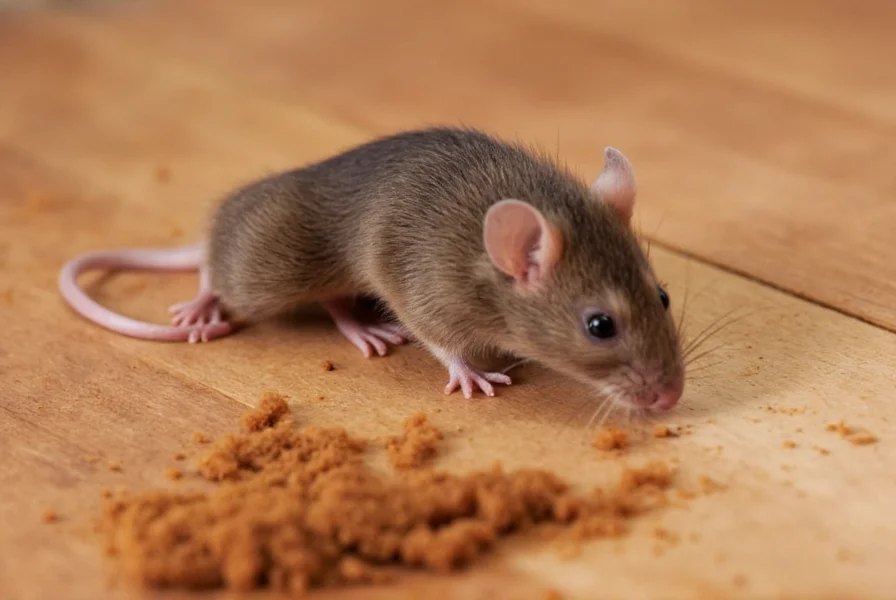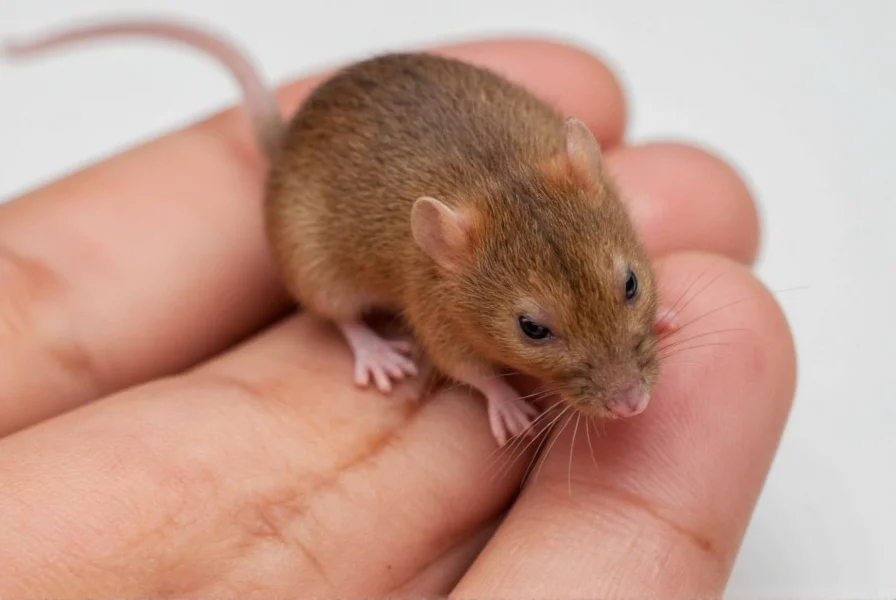Scientific evidence shows that while cinnamon has a strong scent that may temporarily deter mice due to their sensitive olfactory systems, it is not an effective long-term mouse repellent. Mice quickly adapt to the scent, and cinnamon does not address the root causes of infestations like food sources and entry points. Pest control professionals recommend integrated approaches rather than relying solely on cinnamon for mouse control.
Many homeowners search for natural alternatives to chemical rodenticides when dealing with mouse problems. The idea that does cinnamon repel mice has gained popularity through social media and home remedy websites. But what does scientific research actually say about this common household spice as a rodent deterrent?
The Science Behind Cinnamon and Rodent Behavior
Mice possess an exceptionally developed sense of smell, with approximately 1,000 different odor receptors—nearly five times more than humans. This makes strong scents potentially disruptive to their navigation and communication. Cinnamon contains cinnamaldehyde, the compound responsible for its distinctive aroma, which can initially overwhelm a mouse's sensitive olfactory system.
However, research from the Journal of Pest Science indicates that rodents rapidly habituate to persistent scents. In controlled studies, mice exposed to cinnamon returned to treated areas within 48-72 hours as they adapted to the odor. Unlike predators' scents which trigger innate fear responses, cinnamon represents a novel but non-threatening stimulus that mice learn to ignore.
Why People Believe Cinnamon Works for Mouse Control
The misconception that ground cinnamon repels mice likely stems from several factors:
- Temporary displacement effect: The strong initial scent may cause mice to temporarily avoid the immediate area
- Confirmation bias: Homeowners apply cinnamon during active infestations, then attribute subsequent reduction to the spice rather than seasonal patterns or other factors
- Confusion with more effective repellents: Peppermint oil (which contains different active compounds) shows slightly better but still limited efficacy in research
| Natural Repellent | Initial Effectiveness | Duration of Effect | Scientific Support |
|---|---|---|---|
| Cinnamon | Moderate (temporary) | 1-3 days | Low |
| Peppermint oil | High (temporary) | 3-7 days | Moderate |
| Ammonia | High | Variable | Low (safety concerns) |
| Sealed entry points | Complete | Permanent | High |
Practical Application: If You Choose to Try Cinnamon
While not recommended as a primary solution, some homeowners still inquire about how to use cinnamon to keep mice away as part of a broader strategy. If attempting this method:
- Use fresh, high-quality cinnamon powder (not extract) for maximum scent intensity
- Apply in areas where mouse activity has been observed: behind appliances, along baseboards, and near potential entry points
- Reapply every 24-48 hours as the scent dissipates
- Combine with other methods like sealing entry points and eliminating food sources
Remember that cinnamon's effectiveness diminishes rapidly as mice acclimate to the scent. It should never replace proper exclusion methods or professional pest control when needed.

More Effective Mouse Control Strategies
Rather than focusing on natural mouse repellent alternatives with limited evidence, pest management professionals recommend an integrated approach:
- Exclusion: Seal all entry points larger than 1/4 inch with steel wool, caulk, or metal flashing
- Habitat modification: Eliminate food sources by storing food in airtight containers and maintaining cleanliness
- Trapping: Use snap traps or humane traps in high-activity areas
- Professional assessment: Consult pest control experts for persistent infestations
The Centers for Disease Control and Prevention emphasizes that effective rodent control requires addressing the conditions that attract mice, not just attempting to repel them with scents.
Safety Considerations with Cinnamon
While generally safer than chemical alternatives, cinnamon does present some considerations:
- Pets: Cinnamon is non-toxic to dogs and cats in small amounts but can cause respiratory irritation if inhaled in large quantities
- Children: Keep away from young children as ingestion of large amounts may cause stomach upset
- Surfaces: Cinnamon can stain light-colored surfaces and fabrics
Unlike some commercial rodenticides that pose significant poisoning risks, cinnamon represents a lower-risk option when used appropriately, though its effectiveness remains limited.
When to Seek Professional Help
Home remedies like cinnamon may provide temporary relief for minor issues, but professional intervention becomes necessary when:
- You observe more than 3-4 mice signs per week
- Mice are nesting inside walls or living spaces
- Previous DIY methods have failed after 2-3 weeks
- You have concerns about potential disease transmission
Certified pest control professionals can implement comprehensive strategies that address both current infestations and prevention—something no single scent-based repellent can accomplish.
Conclusion: Managing Expectations with Natural Remedies
The question does cinnamon repel mice reflects a understandable desire for simple, natural solutions to pest problems. While cinnamon may provide temporary disruption to mouse activity, scientific evidence does not support it as a reliable or long-term solution. Effective mouse control requires addressing the fundamental conditions that attract rodents—food, water, and shelter—rather than relying on scent-based deterrents that mice quickly ignore.
For homeowners seeking homemade mouse repellent recipes with slightly better evidence, peppermint oil shows marginally greater effectiveness but still falls short of comprehensive pest management. The most successful approaches combine exclusion, sanitation, and targeted trapping rather than depending on single-ingredient remedies.
Frequently Asked Questions
How long does cinnamon keep mice away?
Cinnamon typically deters mice for only 24-72 hours before they adapt to the scent. Research shows rodents habituate quickly to non-threatening odors, making cinnamon ineffective as a long-term solution.
Is cinnamon more effective than peppermint for mice control?
Peppermint oil generally shows slightly better short-term effectiveness than cinnamon due to different active compounds, but both have limited scientific support. Neither provides reliable long-term mouse control compared to exclusion methods.
Can I use cinnamon safely around pets for mouse control?
Cinnamon is generally safe around pets in small amounts used for pest control, but avoid concentrated exposure. Large quantities inhaled can cause respiratory irritation in cats and dogs. Keep pets away from freshly applied cinnamon until it settles.
What's the most effective natural mouse repellent?
No natural scent-based repellent provides reliable long-term mouse control. The most effective approach combines sealing entry points, eliminating food sources, and using traps. While peppermint oil shows slightly better temporary results than cinnamon, exclusion remains the only truly effective method.
Why do mice return after using cinnamon?
Mice quickly adapt to persistent scents like cinnamon through olfactory habituation. Unlike predator scents that trigger innate fear responses, cinnamon represents a novel but non-threatening stimulus that mice learn to ignore within days while continuing to seek food and shelter sources.











 浙公网安备
33010002000092号
浙公网安备
33010002000092号 浙B2-20120091-4
浙B2-20120091-4